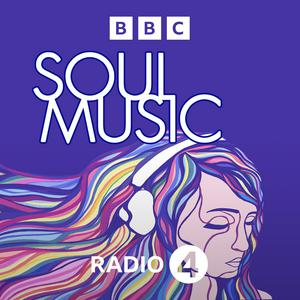Bésame Mucho
The Mexican pianist and composer Consuelo Velázquez was only 16 years old when she wrote Bésame Mucho, and she was yet to have her first kiss. Composer and conductor Odaline de la Martinez remembers hearing the song on the radio as a child in Cuba. She translates the Spanish lyrics - "Kiss me, kiss me passionately, as if tonight was the last time... Kiss me, because I'm afraid to lose you, afterwards". It's an achingly romantic bolero that has been translated into more than 20 languages and recorded by hundreds of artists, including João Gilberto, Frank Sinatra, Cesaria Evora, Diana Krall, Josephine Baker, Trio Los Panchos and The Beatles. Music writer Richard Williams talks about the eternal appeal of the melody and how it creates its emotional impact. German singer and composer Roland Kunz tells the tragic story behind the melody which inspired Consuelo to write the song: a piece by the Catalan composer Enrique Granados, who died the year Velázquez was born. At the height of WWI, Granados and his wife were on their way home to Spain from New York, when their passenger ship was torpedoed by a German U-boat. The story goes that Enrique was picked up by a lifeboat but saw his wife struggling in the water and dived in to save her. They perished, along with 50 other passengers.We hear stories of three very different couples who loved to dance to the song. Peter and Dorothy Tozer met at a dance school in Acton in 1962 when they were 17 and 16 years old. When the song played during the lesson on the night they met, the dance instructor suggested that - as it was Valentine's Day - everyone should give a kiss to whoever they were dancing with at that moment. The two complete strangers shared a kiss, and have been together ever since. When Stephen Miller met his Mexican wife Maria, love wasn't on either of their minds. Stephen was in his fifties and had lost his first wife to cancer. Maria had been a single mum for many years. He didn't speak much Spanish, and she didn't speak much English, but they fell in love and had many wonderful adventures together. One day Stephen was backing the car out of the driveway when he hit the wall. He had begun to lose his sight. As the couple were still adjusting to their new reality, Stephen realised that Maria's memory was beginning to slip. He talks about navigating blindness and dementia, and how they would drop everything to dance together to Bésame Mucho, the lyrics of which grew ever more poignant over time. And Denis Ledoux remembers his wife Martha, who died at 56. They loved to dance to the Cape Verdean singer Cesária Évora's version of the song, practicing their dance steps in the living room. After Martha's death, he would listen to the song all the time, sometimes every day. The song became a way to hold onto her and the life they has shared. Denis reflects on how the song's lyric "kiss me, as if tonight was the last time" made him think of all the last times with Martha that he didn't know were last times. Produced by Mair Bosworth
Mixed by Ilse Lademann
Soul Music is a BBC Audio Bristol production for BBC Radio 4
